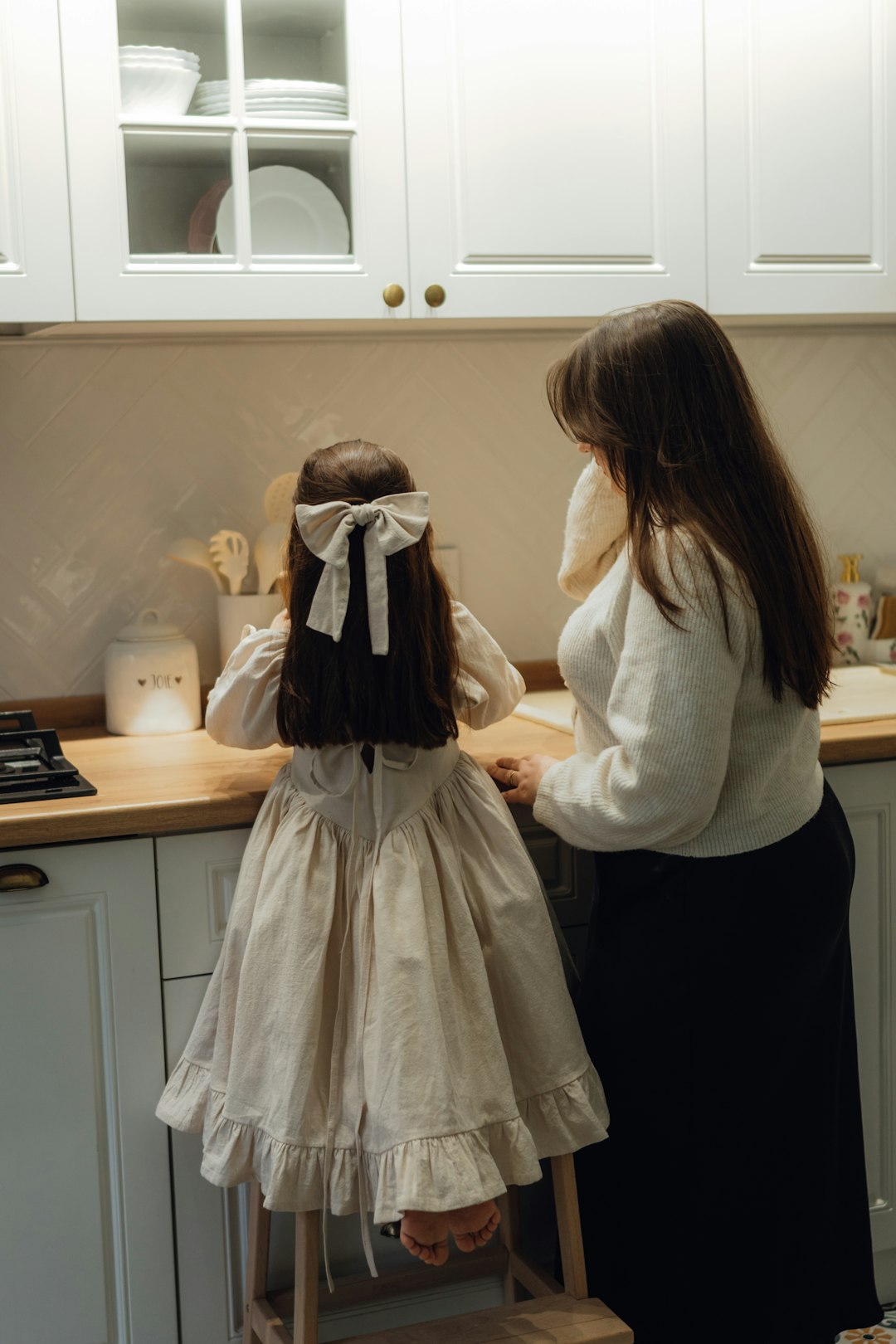Parental guilt is an emotion almost every parent recognizes—a nagging feeling that you’re not doing enough, not being enough, or simply not getting it right. Whether it’s career obligations, screen time battles, missed milestones, that rushed school drop-off, or doubts about parenting decisions, the sense of not measuring up can be overwhelming. In today’s fast-paced, comparison-filled world, parental guilt is on the rise—and knowing how to manage it is crucial for your well-being and your child’s happiness.
What Is Parental Guilt?
Parental guilt refers to the persistent sense that you’re failing your children in some way. It may come up after snapping during a tantrum, when work keeps you late, or even after making a parenting choice that others question. This emotional burden not only saps your joy as a parent but can also interfere with your ability to be effective, confident, and present with your kids. Understanding where it stems from is the first step in conquering it.
Common Sources of Parental Guilt
- Comparisons with Other Parents: Social media and peer groups can amplify feelings of inadequacy.
- Balancing Work and Family: Feeling torn between career success and quality time with children.
- Unrealistic Expectations: Setting perfectionist standards you (or your child) can’t match.
- Past Mistakes: Dwelling on moments of impatience or decisions you regret.
- External Criticism: Family, friends, or even strangers questioning your parenting choices.
How Parental Guilt Affects Families
An occasional pang of guilt is normal, but when it becomes chronic, it can have major impacts on your mental health and your child’s experience. Persistent guilt might lead parents to overcompensate, become overprotective, or have difficulty setting boundaries. It may also increase parental stress, cause anxiety, or lead to burnout.
- Emotional consequences: Feeling chronically inadequate or anxious.
- Parenting behaviors: Over-permissiveness, “giving in,” or withdrawing emotionally.
- Family relationships: Less patience, more arguments, or emotional distance from children or partners.
Understanding Where Parental Guilt Comes From
Knowing the root of your guilt can help you manage it. Here are some common causes, and why they’re not always as justified as they feel:
- Comparisons: Remember, most parents only share the highlights; social media rarely depicts the struggles, mess, or tears.
- Work-Life Juggling: Modern life makes ‘balance’ hard—every parent is negotiating competing demands.
- Parenting Perfectionism: Kids don’t need perfect parents; they need loving, good-enough ones.
- “Shoulds” and Judgments: Outside opinions may not reflect your child’s true needs or your family’s reality.
Real Strategies to Cope With Parental Guilt
While you can’t erase guilt altogether, you can put it in perspective, learn from it, and move forward. Here’s how:
1. Acknowledge Your Feelings
Pretending guilt doesn’t exist usually makes it worse. Instead, notice and name what you’re feeling. Saying “I feel guilty about missing bedtime tonight” is the first step to processing and challenging that feeling.
2. Challenge Unrealistic Expectations
Ask yourself: would I expect another parent to do any better in my shoes? Are my standards even possible to meet? Ideal parenting doesn’t exist; flexibility and self-compassion go a long way.
3. Learn the Power of Repair
It’s inevitable to lose your cool or make a mistake. What matters most is what happens afterwards. Apologize and reconnect:
- “I’m sorry I was impatient. Can we start over?”
- “I didn’t mean to yell; I was feeling stressed. I love you.”
These repairs teach resilience and trust—sometimes even more than “getting it right” the first time.
4. Set Healthy Boundaries (For Yourself and Others)
It’s okay to say no to commitments that overwhelm you, or to explain to family members that you’re doing what’s best for your children. Boundaries protect your energy and model self-respect for your kids.
5. Focus on What Really Matters
List your family values and the things your child will remember: connection, kindness, safety, laughter. A burned dinner or missed soccer game won’t undo years of love and consistency.
6. Practice Self-Compassion
Treat yourself as you would a friend. When guilt pops up, counter it with kindness rather than criticism. Remind yourself: “I am doing my best with what I have.”
Addressing Specific Guilt Triggers
Different situations can trigger guilt for different parents. Here’s how to address some of the most common:
Guilt About Working (Or Not Working)
- If you’re working: Remember that providing financially is a critical form of care. Research shows kids benefit from seeing parents pursue meaningful work and self-fulfillment.
- If you’re staying home: Don’t discount the emotional labor and effort that goes into caregiving; it’s invaluable.
- Tip: If possible, carve out small routines for meaningful connection—a daily walk, goodnight snuggles, or special weekend breakfast.
Guilt About Losing Patience
All parents snap sometimes. Rather than dwelling, focus on repair. Explain what happened at your child’s level and model how to make amends.
Guilt Over Screen Time
Most families rely on screens sometimes—especially during challenging circumstances. It’s the balance that counts. Aim for quality content and be present for screen-free time when you can.
Guilt About Not Doing “Enough” Fun Activities
- Quality over quantity: One-on-one connection—even for 10 minutes—is more powerful than a packed calendar.
- Let go of Pinterest pressure: Simple things, like reading together or making pancakes on Saturday, mean more than elaborate crafts or outings.
When Guilt Is a Sign You Should Change Something
Sometimes, guilt is useful—it may show you’ve acted outside your values. For example, if you feel guilty for yelling frequently, that may be a signal to seek out new strategies for managing stress or anger.
- Reflect: “Is this something I can learn from?”
- Plan: “What could I do differently next time?”
- Act: Model making changes and apologizing if needed.
If guilt is causing ongoing distress or keeping you from enjoying your children, you may benefit from speaking to a counselor or therapist who specializes in parenting or family concerns.
Letting Go of “Perfect Parenting” Myths
Social media and modern culture bombard parents with advice and idealized images. But perfect parenting is a myth—and striving for it can be exhausting and unhealthy. Children don’t need perfection; they need attuned, loving, “good enough” parents who can admit mistakes, repair relationships, and keep trying.
- Filter your information: Choose sources that offer support and empathy rather than judgment or impossible standards.
- Hold on to your values: Decide what actually matters in your home; discard the rest.
- Remember: Being present and responsive matters more than orchestrating a perfect childhood.
How to Model Healthy Self-Forgiveness for Kids
Your children learn how to handle mistakes, self-criticism, and setbacks largely by watching you. By showing them how to acknowledge errors, apologize, and forgive yourself, you’re equipping them with life-long skills for self-regulation and emotional health.
- Apologize and repair when you mess up.
- Talk out loud about how you’re working through your feelings: “I feel bad that I was late, but I can try to do better tomorrow.”
- Show self-kindness: “Everyone has hard days; I can give myself a break.”
Practical Steps to Release Parental Guilt
Need actionable steps? Try these daily practices to keep guilt in check:
- Journaling: Write down negative thoughts, then add a more compassionate perspective.
- Mindfulness: Take a few moments each day to check in with yourself—and lower your inner critic’s volume.
- Affirmations: Use simple mantras—“I am enough.” “My child needs love, not perfection.”
- Gratitude practice: List small parenting wins or moments of connection each day.
Supporting Each Other: Building a Community That Lessens Guilt
One of the best ways to lighten your guilt load is to connect with other parents honestly. Seek out friendships and communities where parents share their struggles, not just successes. Local playgroups, parenting classes, or online groups centered on real talk (rather than just image-sharing) offer a lifeline when guilt strikes.
- Open up: You’ll be surprised how many parents feel the same way.
- Share both wins and fails: Normalize the ups and downs of parenting life.
- Ask for help: Accepting support is a strength, not a weakness.
When to Seek Professional Support
If parental guilt is impacting your mental health, affecting your relationships, or leading to anxiety, depression, or ongoing distress, professional support can make a big difference. Therapists, parenting coaches, or support groups can offer perspective, tools, and coping strategies to help you feel more confident and less isolated. Remember, taking care of your own emotional needs helps your children, too.
Conclusion: You’re a Good Parent—Even When You Feel Otherwise
The immense responsibility of parenthood makes guilt almost inevitable, especially in a world filled with competing demands and messages about “ideal” parenting. But guilt doesn’t have to rule you. By recognizing its sources, challenging unhelpful beliefs, and embracing self-compassion, you’ll discover that your love, effort, and presence are truly enough. Modeling this self-acceptance and resilience will serve both you and your child for a lifetime.
Let go of perfection. Embrace being “good enough.” Remember: your child doesn’t need a flawless parent—they need you.




